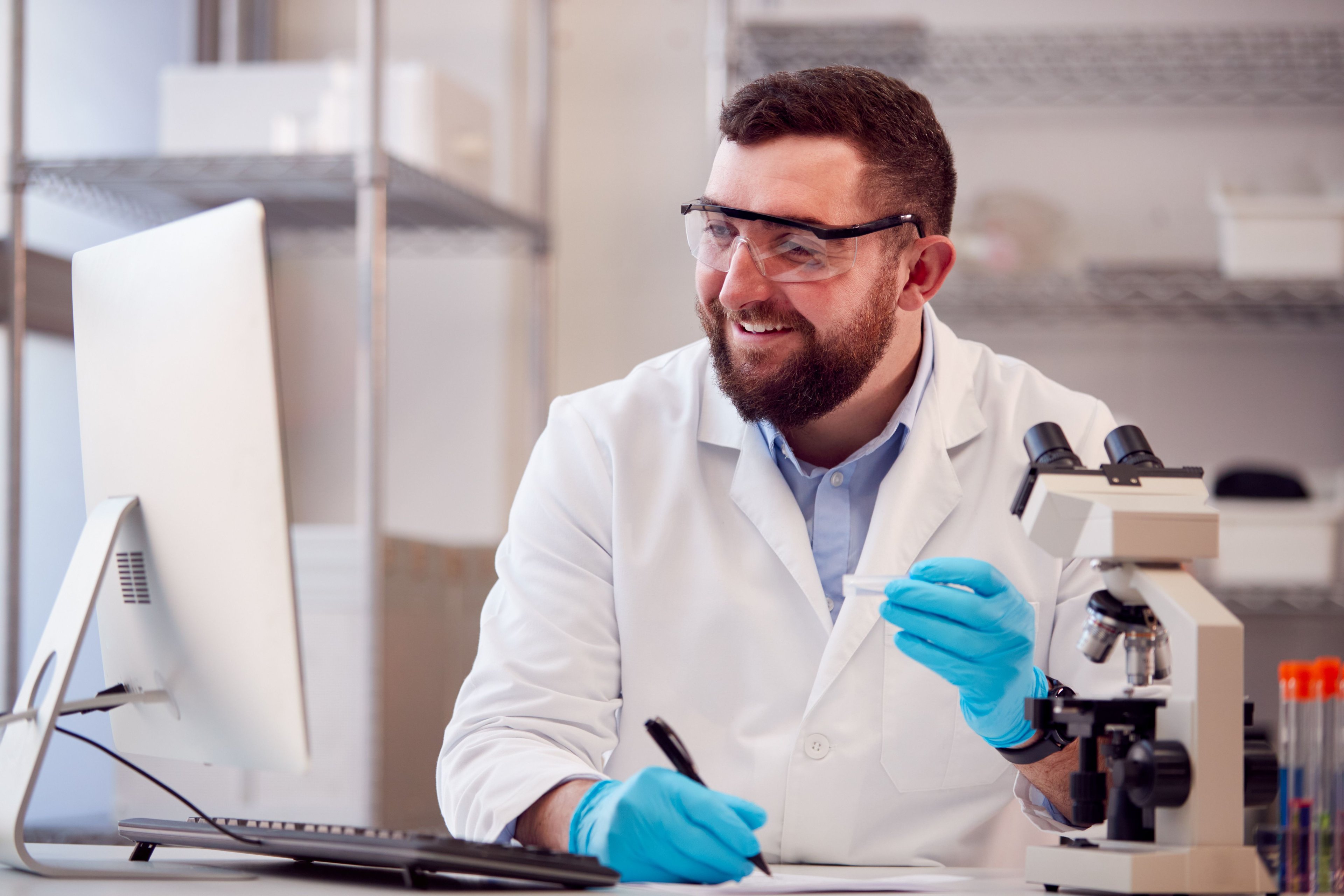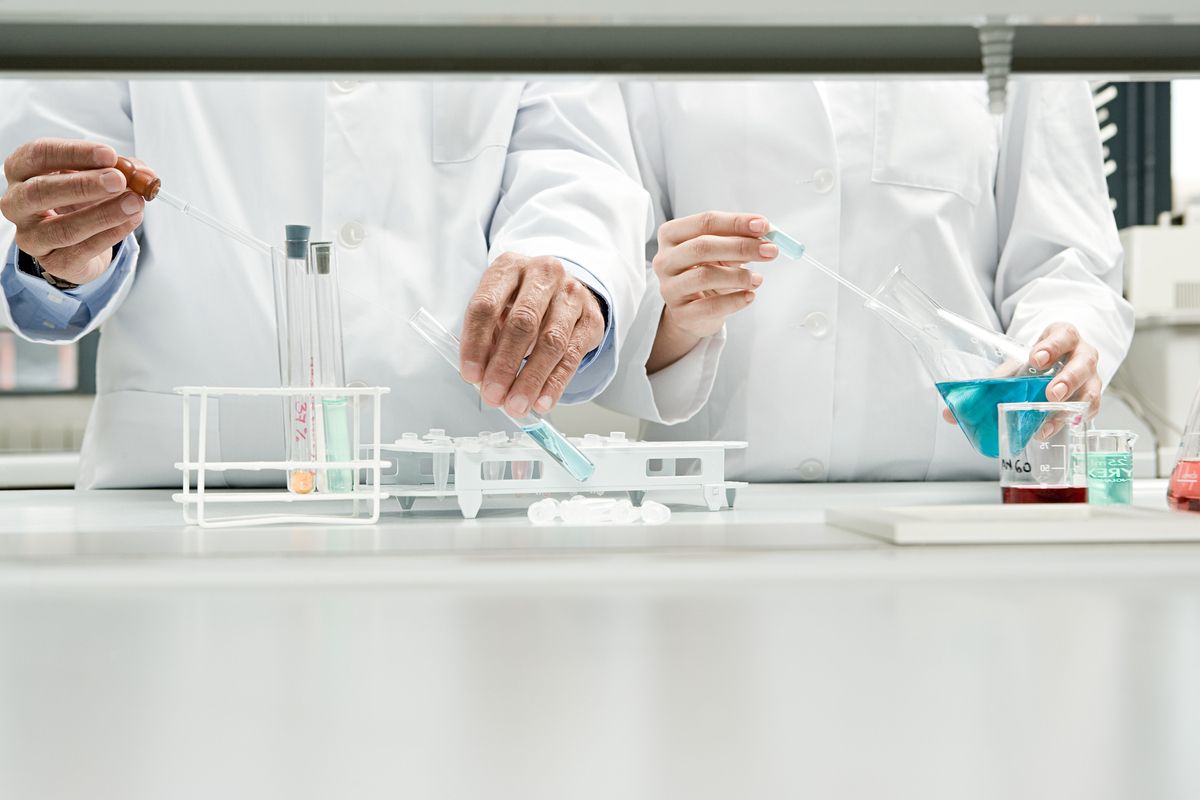
Image source: Disney-ABC Television Group via Flickr.
Since the election, the iShares Nasdaq Biotechnology ETF (IBB +2.33%) has posted a 10% gain. That's well ahead of the 1.5% rise notched by the broad market benchmark S&P 500 over the same period.
Hillary Clinton made curbing the rising cost of prescription medicines a cornerstone of her campaign, so it's no wonder her surprising defeat gave biotech investors a reason to cheer. Let's take a closer look at the biotech Trump bump, to gauge the chances it might continue.
Price controls not a priority?
Shortly after upsetting pollsters with a victory last week, the incoming Trump administration updated its healthcare policy. As expected, the president-elect is coming after the Affordable Care Act, or Obamacare, with a sledgehammer. Prescription drug prices, though, weren't even mentioned.
Although it doesn't seem as if a Republican-controlled White House and Congress will give drug pricing much attention, the public isn't ready to sweep this issue under the rug. According to October's Kaiser Health Tracking Poll, a majority of Americans consider keeping chronic condition treatments affordable and lowering prescription drug prices top priorities for the soon-to-be-unified Republican White House and Congress.
Bring it on home
Another major component of the biotech Trump bump is the incoming administration's pledge to bring profits stashed offshore back home. If successful, the president-elect's plan to enact a one-time tax rate of just 10% on the repatriation of foreign profits could result in a nearly $100 billion U.S. drugmaker cash infusion. According to Evercore ISI, Amgen, Gilead Sciences, and Merck have around $34 billion, $25 billion, and $21 billion in cash, respectively, piling up overseas.

Image source: Getty Images.
Although clinical-stage biotechs without profits wouldn't benefit directly, repatriating those funds would give the big players a lot more ammunition to fund collaboration deals and outright acquisitions. Highly collaborative Ionis Pharmaceuticals (IONS +3.77%) has been one of the election's biggest winners, with a gain of about 50% since votes were cast.
In the third quarter this year, Ionis Pharmaceuticals reported $85 million in license fees following acceptance of applications for Spiraza in the U.S. and EU. If approved, its partner Biogen will market the world's first available treatment for spinal muscular atrophy, which is expected to generate peak annual sales topping $1 billion.
Since 2007, Ionis has received nearly $1.8 billion in cash from partners in one form or another. If massive cash repatriations for big biopharmas materialize, the stock could rise even further.
Faster than fast
Another significant part of the biotech Trump bump is a vague promise to reform the FDA and "put greater focus on the need of patients for new and innovative medical products." Exactly how the incoming administration would improve on existing FDA policies, though, is yet to be established.
In recent years, the FDA has taken bold steps to create incentives for the development of treatments for diseases with unmet need. The breakthrough therapy designation, enacted in 2012, is applied to experimental drugs following early clinical evidence of a substantial improvement over anything currently available. The designation includes access to top-level staff to design lengthy clinical trials in a manner that addresses key regulatory concerns, and it shortens the review process by at least four months -- often much shorter for treatments with life-saving potential.

Image source: Getty Images.
With respect to the public, reducing expenses associated with bringing generic drugs to market might lead to increased competition, create lower prices, and improve accessibility in the process. For the biotech industry, though, Trump's vague intentions could lower the bar for orphan drugs, resulting in a rash of controversial approvals such as Exondys 51 from Sarepta Therapeutics.
The first approved treatment to address the root cause of Duchenne muscular dystrophy won a green light despite a stunning lack of evidence proving its efficacy. Rather than insist the cash-strapped biotech reapply after generating satisfying clinical trial results, the agency caved in to mounting pressure from the muscular dystrophy community.
Encouraging emotional patient advocates to force approvals for experimental drugs that haven't been proved safe and effective could put lives at risk, but it could also lower pre-approval development expenses. If the Trump administration takes clear steps in this direction, however misguided, it would continue lifting stock prices of biotechs developing rare-disease treatments.






